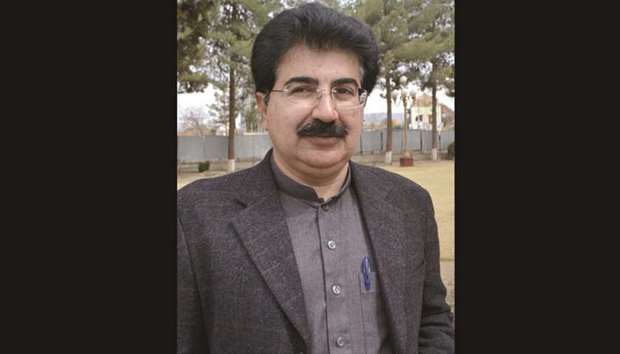A constitutional petition has been filed in the Supreme Court seeking interpretation of the constitutional provisions pertaining to the qualifications of the Speaker of the National Assembly and the Chairman of the Senate.
Petitioner Barrister Ammar Hussain asked the top court to declare that a person could not be chosen or elected as the Senate chairman or the Speaker of the National Assembly if he does not fulfil the qualifications of being elected as President of Pakistan under Article 41(2) of the Constitution.
He further asked the court to declare the election of 39-year-old Muhammad Sadiq Sanjrani as the Senate chairman as illegal, void ab initio and in violation of Article 41(2) as he could not assume the charge of acting president due to the age limitation.
According to Article 41(2), a person shall not be qualified for election as president unless he is a Muslim of not less than 45 years of age and is qualified to be elected as member of the National Assembly.
The Federation of Pakistan, through Secretary Ministry of Law and Justice, the President of Pakistan through the Election Commission of Pakistan (ECP), the Senate chairman, and the speaker of the National Assembly are made respondents in the petition, which was filed on March 16.
The petition further stated that as there is no bar in the constitution for a non-Muslim to become speaker of the National Assembly and the chairman of the Senate, a non-Muslim person could one day become the acting president of Pakistan, which is against the Islamic principle of the Constitution, ideology of Islam and the Ideology of Pakistan.
“In essence, under the provisions of the Constitution of Pakistan 1973, it is very much possible that the chairman of the Senate of Pakistan or the speaker of the National Assembly, or both concurrently/simultaneously are less than forty-five years of age and one or both of them are also non-Muslim(s), which would amount to derogation/abrogation of the fundamental scheme of the Constitution of Pakistan 1973 and the principles of Islam, Islamic Ideology and Ideology of Pakistan as enshrined in the constitution,” the petition stated.
Qualifications for becoming the Senate chairman or speaker of the National Assembly, specified under Articles 53 and 60 read with Article 62, do not match that of a person who can qualify to be elected as president of Pakistan under Article 41(2), the petition added.
“The provisions of Articles 53 and 60, read with Article 62 of the Constitution of Pakistan 1973 are in contravention with Article 41(2) read with Articles 260 and 49 of the Constitution of Pakistan 1973,” the petition maintained, stating the contravention was violating the fundamental scheme of the constitution which was based on principles of Islam.
The petitioner asked the top court to declare that the qualifications for a person to be elected as the Senate chairman or the speaker of the National Assembly must be same as applicable to a person qualified for election as president of Pakistan under Article 41(2) of the Constitution.
He further asked that the top court restrain a person who does not fulfil the qualifications of being elected as president of Pakistan under Article 41(2) from acting as or performing the duties and functions of the president of Pakistan if and when the office of the president of Pakistan becomes vacant.

Sanjrani: too young to be acting president of Pakistan should the position fall vacant.
